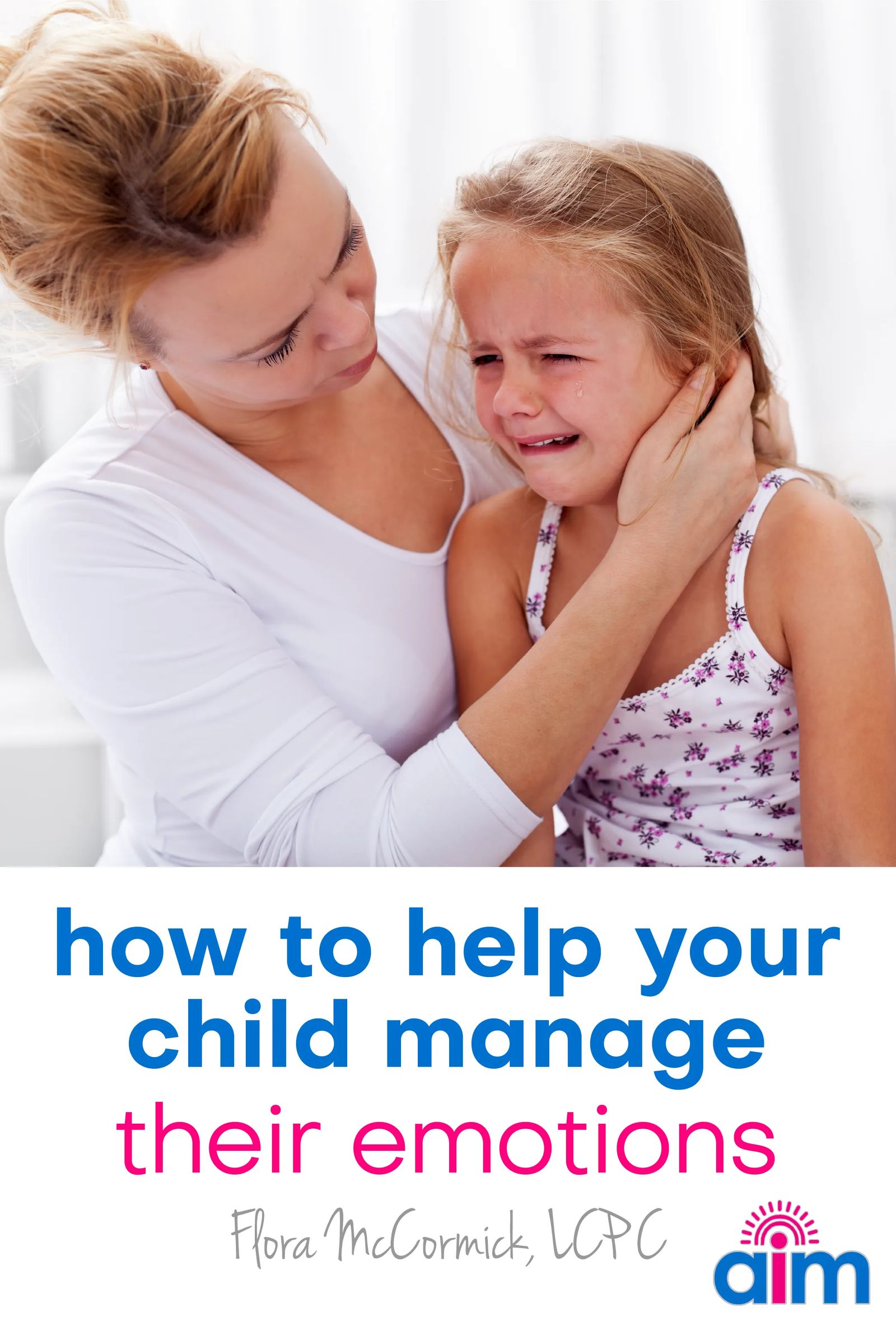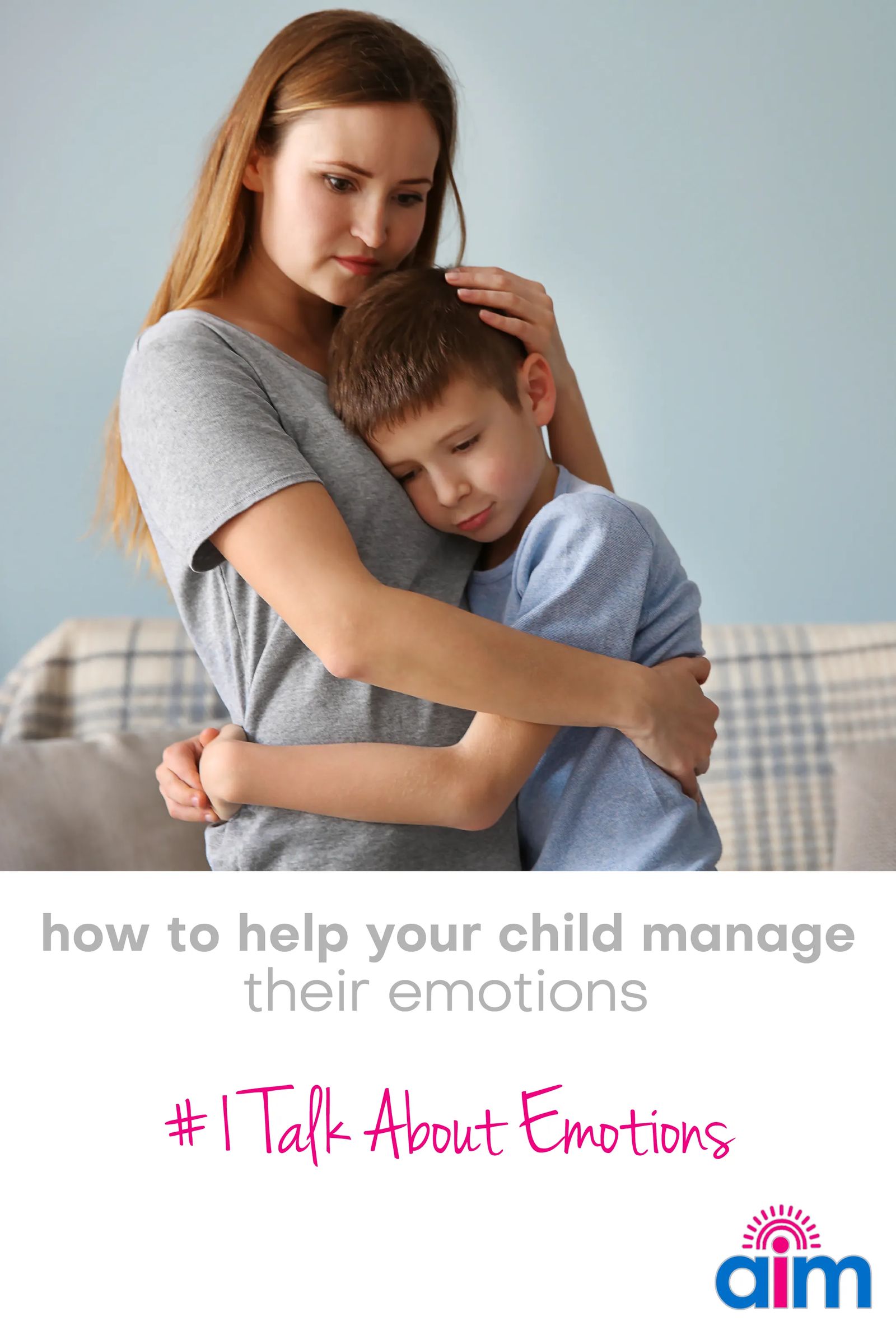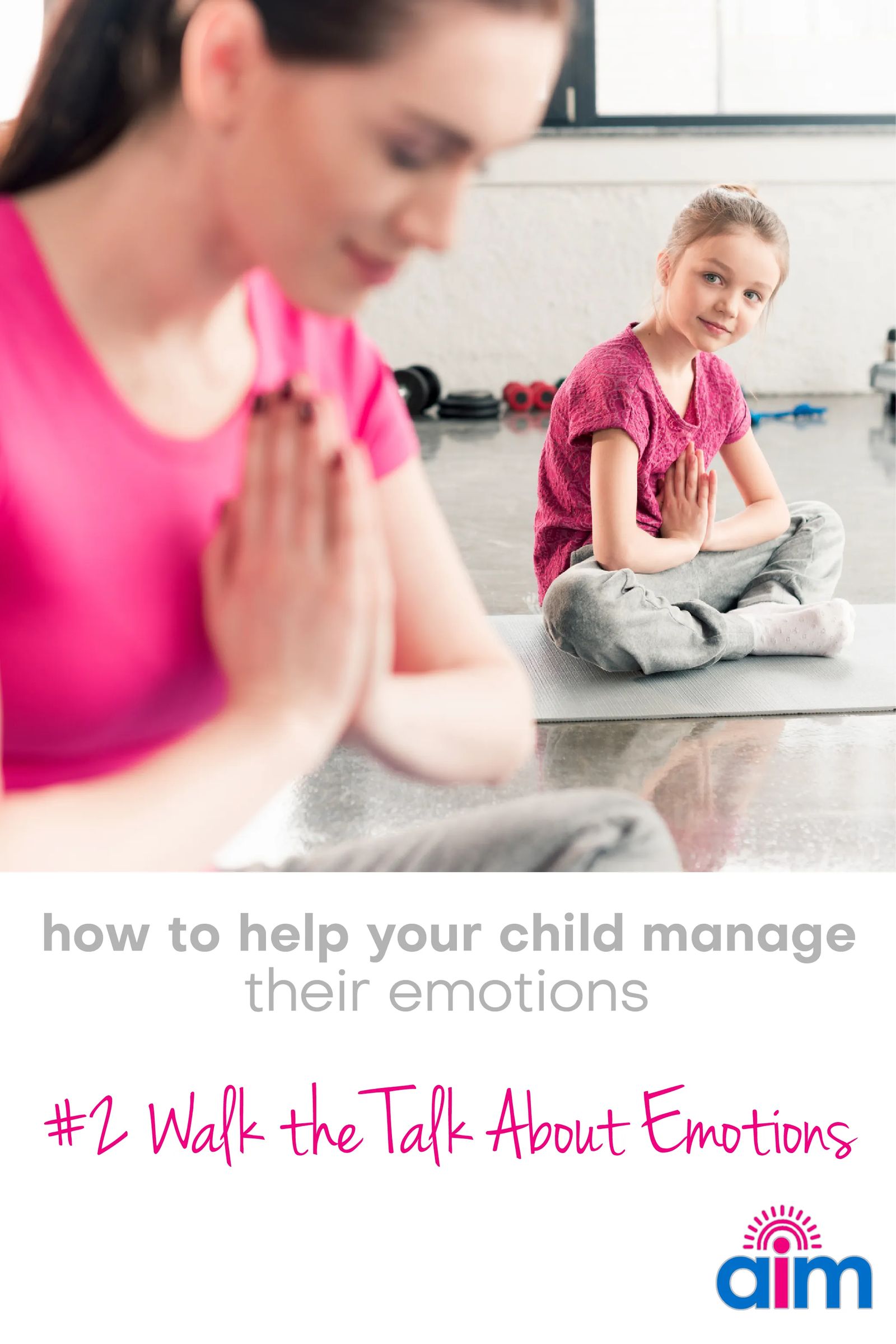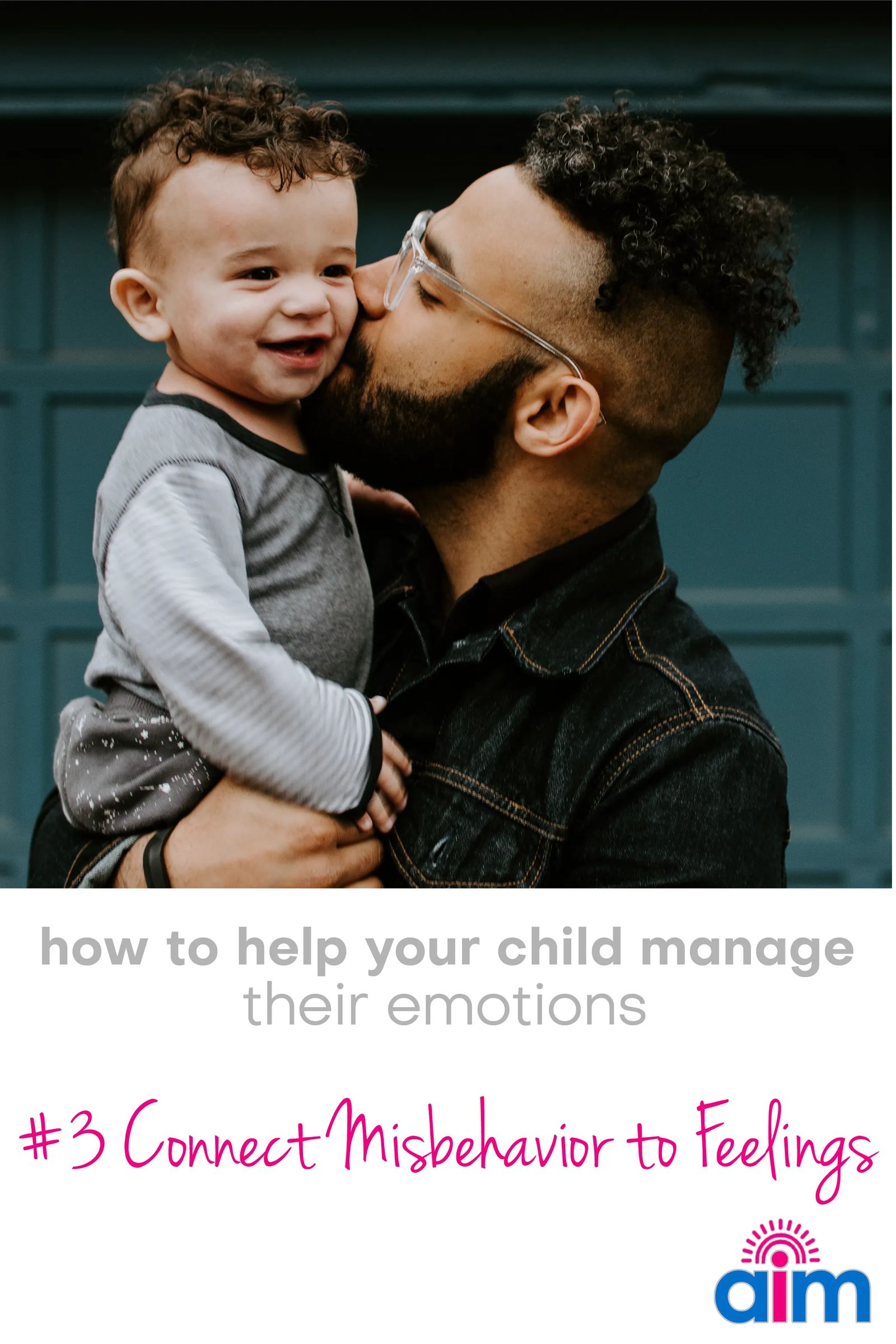How to Help Your Child Manage Their Emotions

Children are born with the hardware that produces a variety of emotions, but they aren’t born with the tools to know how to name, interpret and then manage those emotions. That’s where parents come in, as the first teacher for the child. We have countless opportunities each day and night to be alongside our children while they experience a variety of emotions, and how we interact with them in these moments can make a huge impact. Depending on how a parent reacts, you could be teaching your child that feelings aren’t OK (ie. “boys don’t cry”) or happiness is the only acceptable emotion (“Come on, where’s my smiley girl? Don’t be sad.”) Instead, here are 3 key ways to help your child navigate emotions with a sense that all feelings are acceptable, and they can be managed in effective ways.
1. Talk about Emotions

Whenever possible, name the emotion you see your child is likely experiencing. Of course, we don’t always know the exact emotion of another person, but we can make an intelligent guess. When you see a child who just had a toy taken by another child, and they stomp and start crying, you could say, “Oh boy, you look so frustrated that Eli took your toy,” or “You are angry that Jessica just grabbed that without asking for a turn.” It’s easy to just focus on behavior in these instances and say things like, “Come on, we don’t just cry and stomp. That’s not acceptable behavior.” This neglects the fact that the child is experiencing a feeling. John Gottman, author of “Raising an Emotionally Intelligent Child” says it’s so important to give the emotion a name, and normalize the experience of that emotion.
For example: “You’re crying because your brother took your toy away. That made you feel sad. That would make me feel sad, too.” You can use tools, like the poster to the left, to help your child to identify a variety of emotions.
2. Walk the Talk about Emotions

If we want children to learn to manage their emotions, then we sure better start with managing our own emotions and being authentic in dealing with them rather than denying them. If your child isn’t putting on their shoes when it’s time to get out the door, try, “Caleb, I’m feeling really frustrated that you aren’t putting on your shoes because I’m worried we are going to be late for school.” Take a deep breath and help calm your emotions first, so that you can logically discuss your emotions with your child. You also can practice thinking out loud. If you go to a class with your child and find out from a note on the door that it’s been cancelled, you could say, “Oh man, I’m so disappointed. I was really looking forward to this class with you. I’m going to take a few slow breaths because I am feeling a bit angry.”
3. Whenever possible, connect misbehavior to feelings.

When you are correcting a child’s misbehavior, seek to first explore the feeling that likely led to that behavior, ie. “I think maybe you were sad that Angela had to go home. When her mom said they had to leave, you looked down and then stormed away. I wonder if it was because you were sad. You didn’t get to say goodbye to your friend. Is that what was happening when you stormed away?” (It might be something different and this question gives your child the opportunity to tell you what was bothering her.) “What do you think you could do differently next time you are feeling sad because a friend has to leave?”
It may take some practice to begin the work of teaching emotional intelligence, especially if accepting negative emotions is something of a challenge in your own life. The benefit, however, is huge. "Children whose parents consistently practice Emotion Coaching have better physical health and score higher academically than children whose parents don't offer such guidance." (Raising an Emotionally Intelligent Child, p. 25) It is also important to focus on your child and what developmental needs his or her behavior may be expressing. I strongly suggest that you enroll in Age of Montessori’s Child Development class, to learn more about your child’s needs at each stage. I also recommend reading Gottman’s Raising an Emotionally Intelligent Child, or Raising Cain (great for parents of boys!)

Flora McCormick has been a Licensed Clinical Professional Counselor & Parenting Coach for 10 years, she helps parents of young children to calm the chaos, and revive connection and cooperation. Her strategies are sustainable for busy parents, using kindness & firmness at the SAME time. The result is an improved relationship with your child, where you can enjoy being a parent.




















